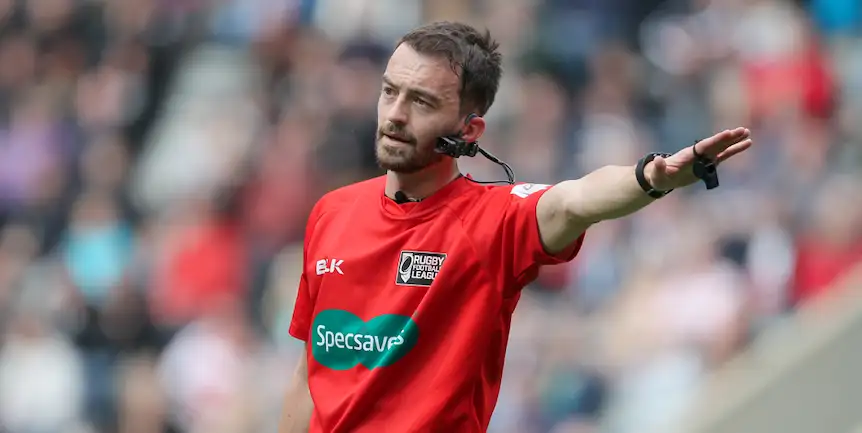Editor’s column: Referee abuse doing more harm than good

Rugby league and society have a lot in common – they’re both broken.
The sight of an irate Wigan fan hurling abuse at James Child for daring to refer a decision to the video referee was unacceptable, even without the context of a recent warning by the RFL to its players and clubs about swearing and abuse of match officials.
The general state of society at the moment appears to promote complaining about everything and playing the victim. You could argue that rugby league’s general demographic are probably amongst those most marginalised and impacted by the levels of austerity and uncertainty the country faces.
Having emotion is fine. Allowing it to boil over to the extent that abusing match officials has now become the norm, is not.
The decision by the video referee, Robert Hicks, to disallow Dan Sarginson’s long effort after a thunderous tackle by Thomas Leuluai on Warrington’s marquee man Blake Austin was incorrect in the eyes of many, though what reprimand people expect him to get is beyond me.
There is not an endless supply chain of referees, and it is diminishing ever thus due to the abuse, scrutiny and pressure they are put under.
The game struggles to grow as it is, well it will struggle even more so without more officials coming through. Additional games overseas will stretch resources even further.
It’s a crisis that has been building for a number of years, and something must be done. Whether that is investing in bringing officials over from the NRL, making it more attractive to be a referee or something else remains to be seen.
What is for sure is that there’s not going to be an overnight fix.
It’s fair to say that decisions are now put under too much scrutiny. The argument that Hicks tried too hard to find fault with Sarginson’s try is fair too. But like any human, he makes mistakes. Just ask Romain Navarrete.
The presence of Stuart Cummings in the Sky Sports commentary box, while insightful, has done nothing to ease the pressure on referees, with Cummings often fanning the flames of controversy surrounding decisions.
The action taken recently to try and improve the ruck seems to have had a positive impact. Minimising penalties stops games from being heavily influenced by them, though of course that’s not to say players should be able to get away with infringements.
Good games seem to come like buses this season. For anyone underwhelmed by recent weeks of Super League action, there were two belting games live on BBC this weekend.
It was, though, interesting to follow the rugby league Twittersphere during the Bradford and Leeds match particularly, as half the viewers deemed it an awful watch, while the other half were loving it, regardless of their affiliation.
Rugby league seems to find it hard to settle on a middle ground in any argument – a match is either terrible or the best you’ve ever seen, and anyone in an expansion debate is deemed either anti-expansionist or pro-expansionist.
There is so little rugby league, both on telly and in general, that we are seemingly desperate for every match to be of the highest quality, when even a low quality game can be entertaining.
It’s a hunt for perfection that will never come. At the same time, the current state of the game in many facets requires fixing, especially with the North American adventure on the horizon.